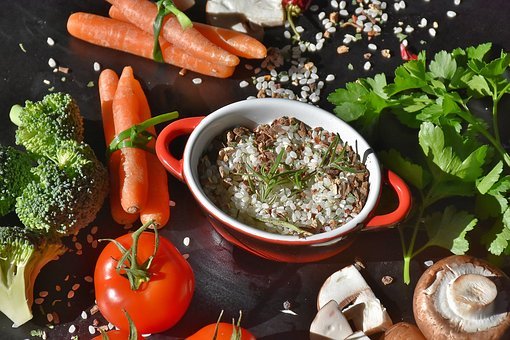Your weight can determine the overall health of your body, with many chronic diseases, ranging from diabetes to certain forms of cancer, being associated with excess weight and obesity. However, when trying to reach a healthy weight through weight loss, you may experience certain side effects, such as excess gas. This side effect is not common for everyone, and the benefits of losing weight far outweigh a little gas. You can limit this uncomfortable side effect by understanding how it occurs, and some of the basic remedies for the problem.

source
FIBER
Fiber is one common culprit of gas development, especially if you change your diet suddenly to include greater amounts of fiber. Fiber is important for weight loss, as it helps you feel fuller longer. It also helps regulate other things like blood glucose, cholesterol and the overall workings of your digestive tract. However, soluble fiber also sits for longer periods of time in the large intestine, where bacteria help break the substance down. These bacteria create gas. When you suddenly change your diet to one with significantly more fiber, your body may take time to adjust, resulting in higher gas production from the bacteria.
FRUITS
A healthy weight loss diet should include plenty of fresh produce, including fruit. If your body is not used to digesting higher amounts of fruits, excess gas can be a consequence. Fruits like apples, peaches and prunes contain a natural sugar called sorbitol. Sorbitol is a carbohydrate that is often associated with higher gas production, suggests the National Digestive Diseases Information Clearinghouse. Fruits also often contain soluble fiber, which can further contribute to gas formation.
VEGETABLES
Weight loss diets often include fresh vegetables. Vegetables like onions and artichokes contain fructose, a natural sugar like sorbitol, which can increase the production of gas in your digestive tract. Vegetables like cabbage, asparagus, broccoli and Brussels sprouts contain a complex sugar called raffinose, which can also contribute to gas formation. In addition, large amounts of raffinose can be found in beans, which is why they are often associated with gas. Like fruits, most vegetables contain fiber, as well.
TREATMENT
To help ease gas related to your weight loss, there are several methods you can try. First, transition into a new diet slowly. Increase your fiber intake by just a few grams a week until you reach your target goal. Keep a food diary to see which foods create the most gas; what may cause gas for you may not cause gas for another. Once you determine which foods are causing the most gas, limit their intake, or replace them with other healthy options. Digestive enzymes, which can be obtained through over-the-counter supplements, can help you better digest the foods that are causing your gas. A visit to your doctor can also be helpful to ensure that your gas is being caused by your methods of weight loss instead of something more serious, like a digestive tract disease.
Congratulations @cues! You have completed the following achievement on the Steem blockchain and have been rewarded with new badge(s) :
You can view your badges on your Steem Board and compare to others on the Steem Ranking
If you no longer want to receive notifications, reply to this comment with the word
STOPTo support your work, I also upvoted your post!
Vote for @Steemitboard as a witness to get one more award and increased upvotes!